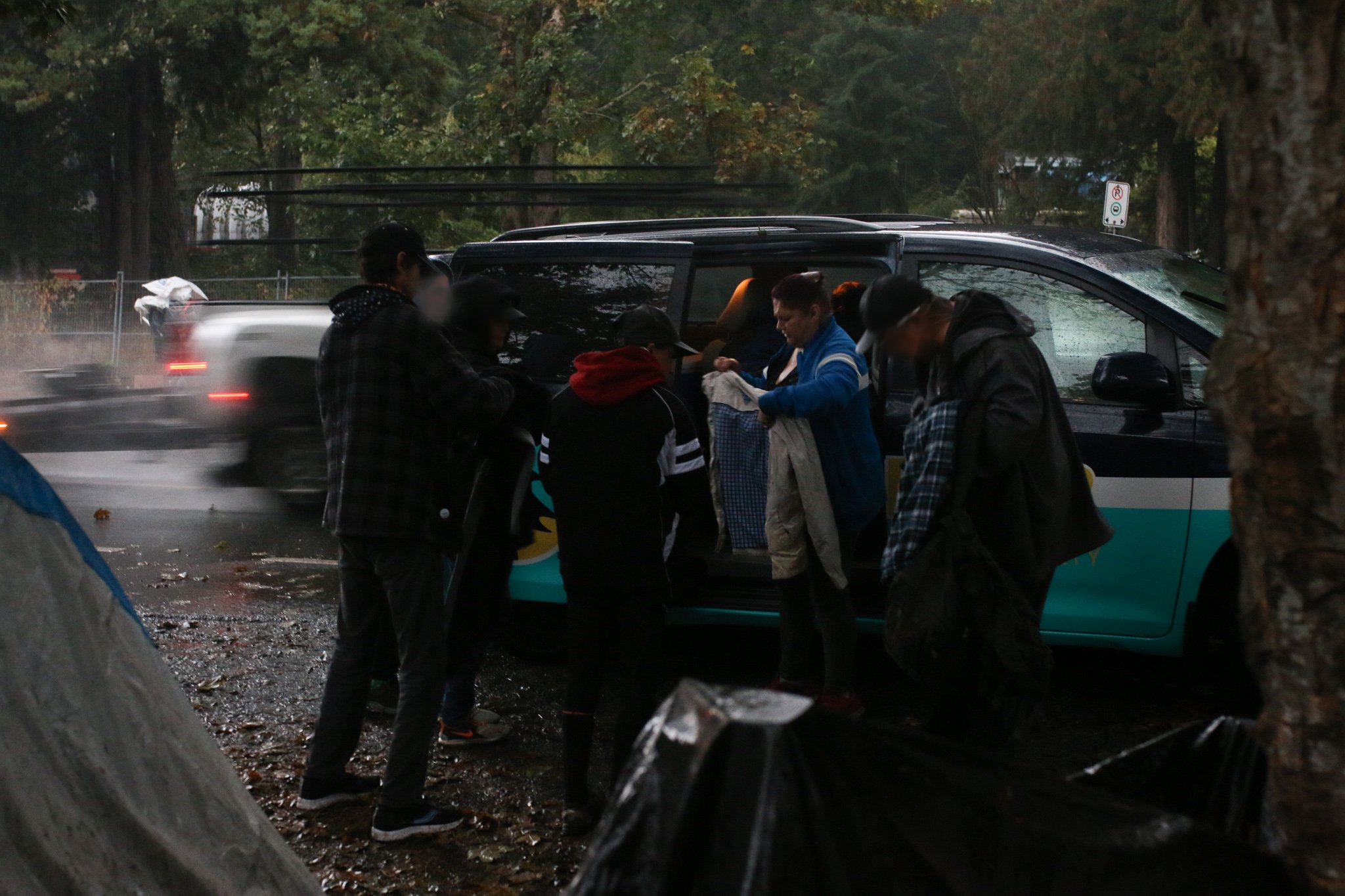The importance of peer workers
The bedrock of CEDAR Outreach’s work is peer support. A peer is someone who has similar life experiences as the clients we serve, these peers have an expertise that can only be gained through experience, not through formal education or textbooks. Our peer workers understand on a personal level the complex obstacles our clients face, and have the knowledge and skills needed to connect with our clients and earn their trust in a way that a typical outreach worker cannot.
Sandi Barclay, one of CEDAR’s peer outreach workers understands what living rough on the street is like first-hand, as she was homeless in Abbotsford ten years ago, a time when outreach services like CEDAR did not exist.
“When I was homeless, we didn’t have all these resources,” said Sandi. “So, now that we have them, I'll go there and handle this because I wish I had that when I was out there. It's just helping them deal with their everyday things that they have to deal with.”
These day-to-day struggles can only be fully understood by someone who has walked in those shoes before. Peers can offer our clients practical support with their basic needs that outreach workers without lived experience may not even know exist.
Due to her time on the street, Sandi is already familiar with many of our clients, and knows what to expect during interactions with them, as well as the right way to connect with them and offer our services.
However, Sandi was quick to point out that working with another outreach worker who doesn’t necessarily share the same lived experiences as our clients creates a great balance, as they have different communication styles and understand situations in different ways.
Milad Salihe immigrated to Canada in 2021 and started working for The Cabin, a drop-in center for street-entrenched people run by Archway Community Services. While working at The Cabin, Milad heard many stories from the clients that he now encounters as an outreach worker for CEDAR, and learned that homelessness is not a choice for so many.
“It's like a silent illness,” said Milad. “It's like a war. I want to help them.”
Both Sandi and Milad worked for The Cabin before its closure, and now occasionally work together as outreach workers for CEDAR.
The average shift of a peer outreach worker involves driving to the known encampments in Abbotsford and asking those who live there if they need any harm reduction supplies or any other necessities, including dry winter clothes, snacks, water bottles, socks, and any other donations they may be carrying in the van with them that day. They also ask those who may be interested if they would like to complete an intake form to help get them into suitable housing.
Outreach workers also shuttle people around in the CEDAR Outreach van that provides transportation for those who need to get to shelters, or a drop-in clinic, or any other appointments. The van also serves to be useful when transporting not only clients themselves, but the many belongings they may have if they need to uproot from where they are currently staying.
“Welcome. You get welcomed,” said Sandi when asked what client’s can expect when they see the eye-catching blue van pull up. “They all rush to the vehicle.”
“When [clients] see the van, I think the respect comes automatically, because they know who we are [and] what they can receive from us.”





